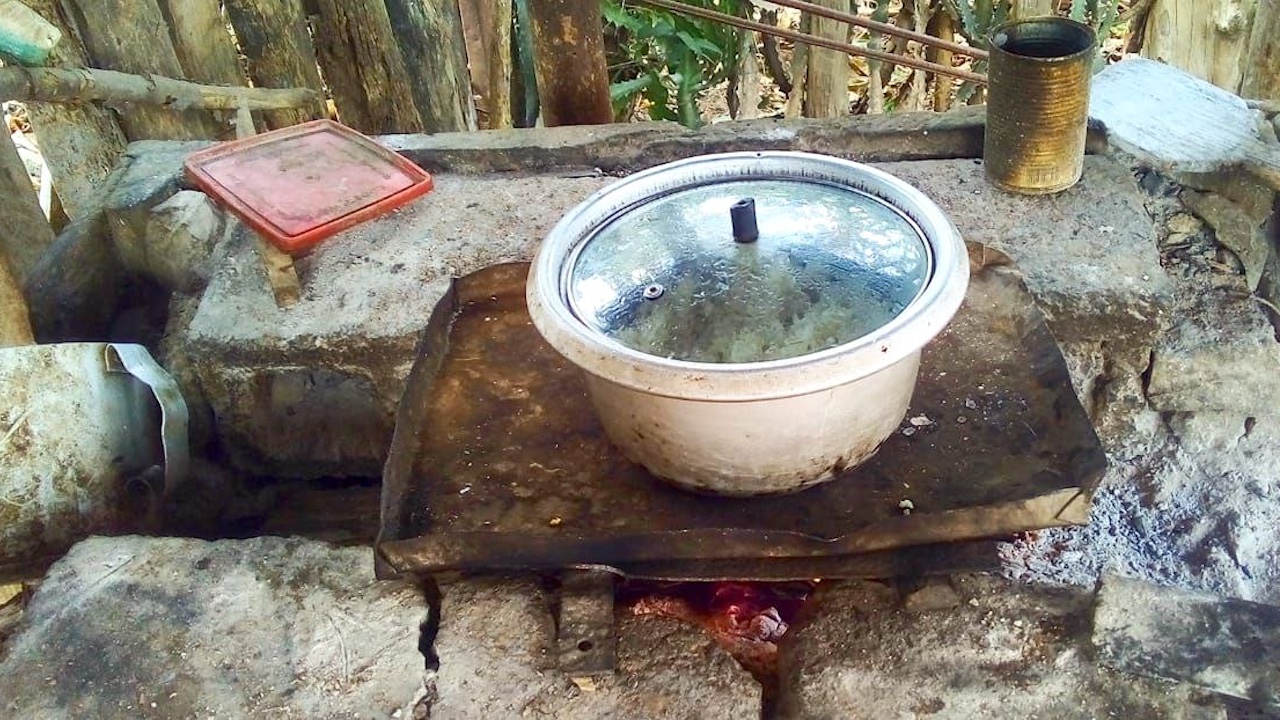"When there is no fat, it's stew or boiled slop that you cook," said Claudia Montoto, one of the grandmothers whose pension is not enough to buy a liter of edible oil, now going for 1,500 pesos in Santiago de Cuba.
"The daily struggle for food shortages is compounded by the cost of this product in Barracones and Los Cangrejitos, where it rose four times in just six months," added Claudia, a retiree who can't afford this product even after collecting with her children.
For this 76-year-old, "here no one can afford anything, and we can't go on like this," with the disastrous consequences for children who, like their grandchildren, "must be forced to swallow what there is. Even so, they often reject the food, because, in addition to it being awful, you have to serve it all gobby."
Since the entry into force of the Ordering Task the inhabitants of the second largest city in Cuba have suffered a disproportionate increase in prices as a result of the botched economic reform that keeps the country mired in a deep crisis.
The cost of living in this territory is among the highest on the island, largely because scarcity and the Government's shock policies have sapped families' purchasing power, and they are forced to choose whether to wash, dress or eat.
The situation spurred hundreds of people taking to the streets to protest the lack of food and electricity in mid-March. Two months later things have only gotten worse and the only response from the authorities has been to militarize parts of the city to try to stave off demonstrations.
"To buy a liter of oil, the stars must be aligned," said Sarbelia, a receptionist who lives in perennial agony to cook "the pumpkin puree or cabbage broth that I force on my children."
"Typical dishes and salads are disappearing. No one thinks of using the little bit of fat they have on those luxuries," said Armando, whose wife struggles to serve up just "peas and okra."
In front of the store windows on the Calle Aguilera Roxana complained that she could not afford to buy the product in a city where, despite featuring the only operating oil factory in Cuba, "the State and individuals compete to see who suffocates or starves the people the fastest."
Caridad said that she tries to fry chicken in its own fat, "with the risk that it will burn or stick to the pots," a method that she alternates with "browning foods with sugar," which is also deficient and alters the food's flavor.
At the state network's stores a liter of oil now costs 48.75 pesos, while a little bag costs 23.75. The problem, according to Adriana, is that to buy it "you have to really luck out, because the lack of regulation stokes the black market."
A saleswoman from La California explained to DIARIO DE CUBA that the oil that reaches MLC stores has already been bought by certain customers, and never even hits the shelves. "There are entire lots that are bought by MSMEs or resellers, who hoard the merchandise and do a very lucrative business," he added.
In the same vein, a Commerce official acknowledged that part of the regulated oil that is distributed through the rationing card, and that for bakeries, will end up on the informal market at unattainable prices, and without distinguishing between oils based on its quality, or whether it is sealed; or soy, palm or sunflower.
"Nothing they do is to help," said another Santiago woman who has a girl with nephrotic syndrome. "The Government doesn't address my case, nor does it treat my daughter's health problem."
Julio Espinosa is one of those who think that the State always uses the "gradual scheme," which consists of "making the product disappear, which favors speculation, evaluating the extent to which the people withstand this abuse, and then releasing the merchandise at prices that are seen as a relief, but deep down they are part of an extortion, covering up business inefficiency."
In rural areas the prices are even more abusive. Rogelio Mastrapa, based in Laguna Blanca, said that "for a jug of five liters of oil they are asking for between 8,000 and 10,000 pesos, a luxury that some can afford, but criminal for day laborers and agricultural workers."
Most families, both in the countryside and in the cities, refuse to exchange vegetable oil for pork fat, since a pound sells for 750 pesos, and when it is friend a bottle turns out to be more expensive. In some areas of the province there are those who cook with sebum or coconut butter.
The situation is getting worse because the oil for basic groceries is almost never available on time or in the established quantities. In fact, the quota of 250 milliliters per person is already overdue at all the bodegas. In the meantime, the product can be found at private businesses or the informal market.
Although Cuba has an Edible Oil Refining Company (ERASOL), based in Santiago de Cuba, and two bottling plants for the oil it imports, located in Camagüey and Havana, demand has not been met for almost a decade.
The national program for the promotion of soybeans, local oil production's base ingredient, has not yielded results, mainly due to the lack of state financing and failures to pay suppliers and producers.
